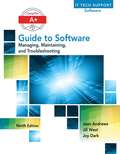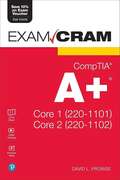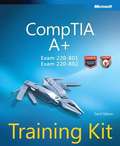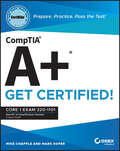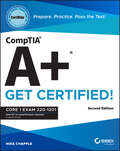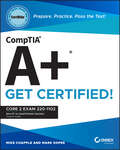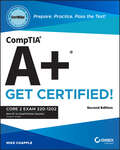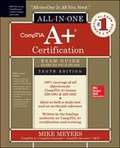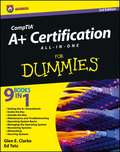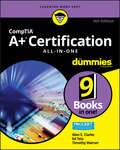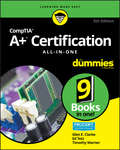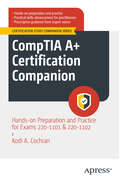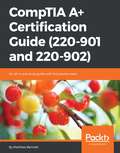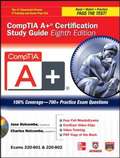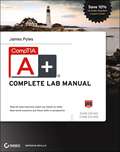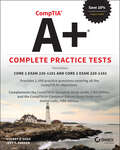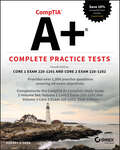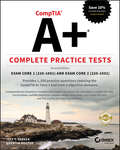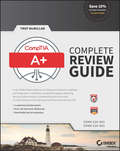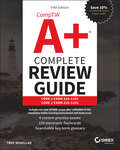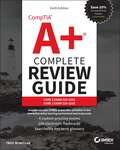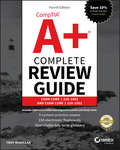- Table View
- List View
Como hacer, mercadear y vender ebooks - todo gratis
by Jason Matthews Maria JimenezTodo para los escritores que venden ebooks. La edición electrónica habilita a los autores independientes para retener la mayor parte de las regalías. Descubra la mejor manera para: Usar las redes sociales - construir una plataforma en línea de autor Formatear y subir documentos para Amazon, Smashwords, Barnes & Noble, Apple, Google y otros. Convertir documentos a cualquier formato (epub, mobi, pdf y muchos más) Vender libros en línea Crear un sitio web Hacer un blog Diseñar cubiertas para libros electrónicos Crecer con SEO (search engine optimization) en Google-Bing Vender libros con Paypal en su propio sitio -en piloto automático- Hacer libros impresos Usar las relaciones públicas para conseguir tráfico a su sitio. Y mucho más. Lleno de información, ejemplos, más de 250 vínculos a sitios y software que le permitirán lograr sus objetivos con los canales de distribución y sus sitios web. Suficientemente simple para los principiantes y relevante para los expertos, quienes puede utilizar la orientación adicional. Es como tener diez libros en uno solo, la única fuente con todo lo que usted necesita para ser exitoso.
Como usar a Apple TV 4K: Um guia de uso para a Apple TV com o Controle Remoto Siri
by Adidas WilsonQuando se ouve falar em Apple TV, as pessoas pensam automaticamente que estão comprando um aparelho de televisão. Mas não é isso. A Apple TV é, na verdade, um aparelho usado para streaming, parecido com o Fire, da Amazon ou com o Roku. É uma caixinha preta de quase quatro centímetros de altura, e quase dez centímetros de largura, e usa uma plataforma similar à do iPad e iPhone. É possível fazer o download de uma lista de aplicativos e jogos, algo que vai além das plataformas comuns de streaming como Hulu, Netflix e Amazon, por exemplo. A Apple TV é centrada em vários aplicativos, e ainda é capaz de transmitir vários seriados e filmes diretamente na sua HDTV, mas essa é só a ponta do iceberg de todos os usos que essa caixinha disponibiliza. Com essa caixa você pode assistir e ouvir podcasts, jogar seus jogos favoritos, ouvir a sua playlist de academia, e muito mais. Mas é importante mencionar que para aproveitar todos os benefícios que esta caixa está pronta para proporcionar, é preciso instalar os aplicativos. Alguns dos aplicativos são gratuitos, outros são pagos. Pense dessa forma; a Apple TV pode transformar a sua televisão em uma TV Smart. Você pode alugar seus filmes favoritos ou assistir à coleção da sua conta do iTunes. Você também pode assistir filmes e seriados nos aplicativos como Netflix e Hulu Plus; e ouvir música dos aplicativos Pandora e Apple Music. A lista de coisas que a Apple TV pode fazer por você é interminável. A Apple TV 4K foi feita com alguns dos processadores mais rápidos que existem, os mesmos do iPad Pro. A caixa da Apple TV foi projetada para ser tão potente quanto a maioria dos laptops que usamos. Ela também tem processadores gráficos velozes que foram projetados para transformar a caixinha preta em um console de videogame. Nada parece ser melhor do que isso. A Apple realmente deu uma nova cara à nova geração, mas isso não significa que você deva jogar o seu modelo antigo fora, é a mesma cois
Comp TIA A+ Guide to Software: Managing, Maintaining, and Troubleshooting
by Jean Andrews Joy Dark Jill WestThis step-by-step, highly visual text provides a comprehensive introduction to managing and maintaining computer hardware and software. Written by best-selling author and educator Jean Andrews, A+ Guide to Software, Ninth Edition closely integrates the CompTIA A+ Exam objectives to prepare students for the 220-902 certification exam. The new Ninth Edition also features extensive updates to reflect current technology, techniques, and industry standards in the dynamic, fast-paced field of PC repair and information technology. Each chapter covers both core concepts and advanced topics, organizing material to facilitate practical application and encourage students to learn by doing. The new edition features more coverage of security, virtualization, new coverage of cloud computing, Linux and Mac OS, and increased emphasis on mobile devices. Supported by a wide range of supplemental resources to enhance learning with Lab Manuals, CourseNotes, online labs and the optional MindTap that includes labs, certification test prep and interactive exercises and activities, this proven text offers students an ideal way to prepare for success as a professional IT support technician.
CompTIA A+ Core 1 (220-1101) and Core 2 (220-1102) Exam Cram
by David L. ProwseCompTIA A+ Core 1 (220-1101) and Core 2 (220-1102) Exam Cram is an all-inclusive study guide designed to help you pass the updated versions of the CompTIA A+ exams. Prepare for test day success with complete coverage of exam objectives and topics, plus hundreds of realistic practice questions. Extensive prep tools include quizzes, Exam Alerts, and our essential last-minute review CramSheet. The powerful Pearson Test Prep practice test software provides real-time assessment and feedback with four complete exams. <p><p> Covers the critical information needed to score higher on your CompTIA A+ Core 1 (220-1101) and Core 2 (220-1102) exams! <p>* Install, configure, and troubleshoot PC hardware including CPUs, RAM, video cards, network cards, storage drives, and peripherals <p>* Work effectively with mobile devices: laptops, tablets, and smartphones <p><p>* Configure Windows settings, components, and administrative tools <p>* Manage and troubleshoot Linux, macOS, Android, and iOS <p>* Administer and support basic IT infrastructure including IP networking, IoT devices, virtualization, cloud-based systems, and backup systems <p>* Understand security features such as firewalls, multifactor authentication, permissions, and access control * Defend against malware, network threats, and social engineering <p>* Learn the basics of IT documentation, change management, and incident response <p><p> Prepare for your exam with Pearson Test Prep <p><p>* Realistic practice questions and answers <p>* Comprehensive reporting and feedback <p>* Customized testing in study, practice exam, or flash card modes <p>* Complete coverage of A+ Core 1 (220-1101) and Core 2 (220-1102) exam objectives
CompTIA A+ (Exam 220-801 and Exam 220-802) Training Kit
by Darril GibsonCompTIA A+ Exams 220-801 and 220-802 candidates can ace their preparation with this training kit that allows them to work at their own pace through a series of lessons and practical exercises, and then assess their computing technology skills with the online practice test--featuring multiple, customizable testing options to meet their specific needs.
CompTIA A+ CertMike: Core 1 Exam 220-1101 (CertMike Get Certified)
by Mike Chapple Mark SoperSkip the fluff and get straight to the essentials with an indispensable prep handbook for the CompTIA A+ Core 1 exam In CompTIA A+ CertMike: Prepare. Practice. Pass the Test! Get Certified! Core 1 Exam 220-1101, veteran tech experts and educators Mike Chapple and Mark Soper deliver a hands-on and practical roadmap to taking—and succeeding on—the CompTIA A+ Core 1 exam. You’ll learn how to install, configure, and maintain computer equipment, mobile devices, and software for end users, service components based on customer requirements, understand networking basics, and apply essential cybersecurity methods. Ace the test using the proven CertMike approach: Prepare -- CertMike is your personal study coach, guiding you through all the exam objectives and helping you gain an understanding of how they apply to on-the-job tasks! Practice -- Each chapter includes two multiple choice practice questions. Work through the detailed explanations to evaluate each answer option and understand the reason for the best answer! Pass -- On exam day, use the critical knowledge you've learned when you’re ready to take the test. You'll feel ready and confident to pass the exam and earn your certification! With a laser-focus on getting you job- and exam-ready, the book skips the fluff and gets right to the point of getting you familiar with IT basics and on the road to an in-demand IT certification and a new career in tech. You’ll also get complimentary access to additional online study tools, complete with a bonus practice exam and audio recordings of the CertMike Exam Essentials. Banish test anxiety and feel ready to pass the test—the first time around! An indispensable resource for anyone preparing for their A+ certification, CompTIA A+ CertMike: Prepare. Practice. Pass the Test! Get Certified! Core 1 Exam 220-1101 is also a must-read for hardware and PC technicians seeking to upgrade their skillset.
CompTIA A+ CertMike: Core 1 Exam 220-1201 (CertMike Get Certified)
by Mike ChappleSkip the fluff and quickly master the essentials with this accurate CompTIA A+ certification test prep In the second edition of CompTIA A+ CertMike: Prepare. Practice. Pass the Test! Get Certified! Core 1 Exam 220-1201, tech educator and expert Mike Chapple delivers a hands-on guide to efficiently and effectively preparing for the CompTIA A+ Core 1 exam. The book contains concise discussions of the mobile devices, networking technologies, hardware components, virtualization and cloud computing services, and troubleshooting techniques you'll need for the updated test and on a day-to-day basis at your job. Chapple covers all relevant technological advances in mobile, cloud, networking, and security that have taken place since publication of the first edition of this book. He also walks you through the material you need to know to succeed on the newly created 220-1201 exam. You'll use the proven CertMike approach to: Prepare—CertMike is your personal study coach, guiding you through all the exam objectives and helping you gain an understanding of how they apply to on-the-job tasks! Practice—Each chapter includes two multiple choice practice questions. Work through the detailed explanations to evaluate each answer option and understand the reason for the best answer! Pass—On exam day, use the critical knowledge you've learned when you're ready to take the test. You'll feel ready and confident to pass the exam and earn your certification! Laser-focused on starting and accelerating your IT technician career and ensuring your success on the A+ certification Core 1 exam, the book skips the fluff and familiarizes you with IT basics you'll use on the test and every day in your work. It also offers complimentary access to helpful online study tools, like a bonus practice exam and audio recordings of the CertMike Exam Essentials. The second edition of CompTIA A+ CertMike is perfect for anyone preparing for their A+ certification who wants to reduce test anxiety, boost their confidence, and get up to speed quickly and efficiently. It's also a great resource for hardware and PC technicians who want to reinforce foundational skills and upgrade their professional knowledge.
CompTIA A+ CertMike: Core 2 Exam 220-1102 (CertMike Get Certified)
by Mike Chapple Mark SoperSkip the fluff and get straight to the essentials with an indispensable prep handbook for the CompTIA A+ Core 2 exam In CompTIA A+ CertMike: Prepare. Practice. Pass the Test! Get Certified!Core 2 Exam 220-1102, veteran tech experts and educators Mike Chapple and Mark Soper deliver a hands-on and practical roadmap to taking—and succeeding on—the CompTIA A+ Core 2 exam. You’ll learn how to install, configure, and maintain computer equipment, mobile devices, and software for end users, service components based on customer requirements, understand networking basics, and apply essential cybersecurity methods. Ace the test using the proven CertMike approach: Prepare -- CertMike is your personal study coach, guiding you through all the exam objectives and helping you gain an understanding of how they apply to on-the-job tasks! Practice -- Each chapter includes two multiple choice practice questions. Work through the detailed explanations to evaluate each answer option and understand the reason for the best answer! Pass -- On exam day, use the critical knowledge you've learned when you’re ready to take the test. You'll feel ready and confident to pass the exam and earn your certification! With a laser-focus on getting you job- and exam-ready, the book skips the fluff and gets right to the point of getting you familiar with IT basics and on the road to an in-demand IT certification and a new career in tech. You’ll also get complimentary access to additional online study tools, complete with a bonus practice exam and audio recordings of the CertMike Exam Essentials. Banish test anxiety and feel ready to pass the test—the first time around! An indispensable resource for anyone preparing for their A+ certification, CompTIA A+ CertMike: Prepare. Practice. Pass the Test! Get Certified! Core 2 Exam 220-1102 is also a must-read for hardware and PC technicians seeking to upgrade their skillset.
CompTIA A+ CertMike: Core 2 Exam 220-1202 (CertMike Get Certified)
by Mike ChappleSkip the fluff and quickly master the essentials with this accurate CompTIA A+ certification test prep In the second edition of CompTIA A+ CertMike: Prepare. Practice. Pass the Test! Get Certified! Core 2 Exam 220-1202, tech educator and expert Mike Chapple delivers a hands-on guide to efficiently and effectively preparing for the CompTIA A+ Core 2 exam. The book contains concise discussions of the operating systems, security practices, software troubleshooting techniques, and operational procedures you'll need for the updated test and on a day-to-day basis at your job. Chapple covers all relevant technological advances in mobile, cloud, networking, and security that have taken place since publication of the first edition of this book. He also walks you through the material you need to know to succeed on the newly created 220-1202 exam. You'll use the proven CertMike approach to: Prepare—CertMike is your personal study coach, guiding you through all the exam objectives and helping you gain an understanding of how they apply to on-the-job tasks! Practice—Each chapter includes two multiple choice practice questions. Work through the detailed explanations to evaluate each answer option and understand the reason for the best answer! Pass—On exam day, use the critical knowledge you've learned when you're ready to take the test. You'll feel ready and confident to pass the exam and earn your certification! Laser-focused on starting and accelerating your IT technician career and ensuring your success on the A+ certification Core 2 exam, the book skips the fluff and familiarizes you with IT basics you'll use on the test and every day in your work. It also offers complimentary access to helpful online study tools, like a bonus practice exam and audio recordings of the CertMike Exam Essentials. The second edition of CompTIA A+ CertMike is perfect for anyone preparing for their A+ certification who wants to reduce test anxiety, boost their confidence, and get up to speed quickly and efficiently. It's also a great resource for hardware and PC technicians who want to reinforce foundational skills and upgrade their professional knowledge.
CompTIA A+ Certification All-in-One Exam Guide, (Exams 220-1101 & 220-1102)
by Mike Meyers Travis A. Everett Andrew HutzThis fully revised and updated resource offers complete coverage of the latest release of CompTIA A+ exams 220-1101 & 220-1102. You’ll find learning objectives at the beginning of each chapter, exam tips, practice exam questions, and in-depth explanations. Designed to help you pass the CompTIA A+ exams with ease, this definitive guide also serves as an essential on-the-job IT reference.
CompTIA A+ Certification All-in-One Exam Guide: Exams 220-1001 & 220-1002
by Mike MeyersThis bestselling on-the-job reference and test preparation guide has been fully revised for the new 2019 CompTIA Core 1 and Core 2 CompTIA A+ exam objectives <p><p> This fully revised and updated resource offers complete coverage of the latest release of CompTIA A+ exams 220-1001 & 220-1002. You'll find learning objectives at the beginning of each chapter, exam tips, practice exam questions, and in-depth explanations. Designed to help you pass the CompTIA A+ exams with ease, this definitive guide also serves as an essential on-the-job IT reference.
CompTIA A+ Certification All-in-One For Dummies
by Glen E. Clarke Edward TetzComprehensive coverage of everything you must know to pass CompTIA's A+ examA+ is the gateway certification into many IT careers, and interest in certification is exploding. This bestselling A+ certification guide is updated to cover the new A+ exam. It includes the new Windows coverage and reflects the revised emphasis on objectives. Nine minibooks focus individually on specific hardware and OS characteristics including installation and configuration, diagnostics, preventive maintenance, motherboard and processors, printers, networking, and fundamentals. A companion website contains the popular Dummies Test Engine test-prep software.A+ certification is the first step toward a variety of IT careers, and this guide is fully updated for the latest revision of the examNine minibooks cover the domains of the exam in detail, reflecting the enhanced emphasis on hardware and new Windows contentCovers installation, configuration, and upgrading; diagnosing and troubleshooting; preventive maintenance; motherboards, processors and memory; printers; networking; and OS fundamentalsCompanion website provides the popular Dummies Test Engine, an exclusive, customizable test-prep software package now with twice as many sample test questions as previous editionsAnyone seeking CompTIA A+ certification will be better prepared with help from CompTIA A+ Certification All-in-One For Dummies, 3rd Edition.
CompTIA A+ Certification All-in-One For Dummies
by Glen E. Clarke Edward Tetz Timothy WarnerAll the knowledge you need to pass the new A+ exam A+ is the gateway certification into many IT careers and can be essential in order to start your occupation off on the right foot in the exciting and rapidly expanding field of information technology. Luckily, the 9 minibooks in CompTIA A+ Certification All-in-One For Dummies make it easier to prepare for this all-important exam so you can pass with flying colors! It quickly and easily gets you up to speed on everything from networking and computer repair to troubleshooting, security, permissions, customer service--and everything in between. The CompTIA A+ test is a rigorous exam, but the experts who wrote this book know exactly what you need to understand in order to help you reach your certification goal. Fully updated for the latest revision of the exam, this comprehensive guide covers the domains of the exam in detail, reflecting the enhanced emphasis on hardware and new Windows content, as well as the nuts and bolts, like operating system basics, recovering systems, securing systems, and more. Find new content on Windows 8, Mac OS X, Linux, and mobile devices Get test-taking advice for the big day Prepare for the A+ exam with a review of the types of questions you'll see on the actual test Use the online test bank to gauge your knowledge--and find out where you need more study help With the help of this friendly, hands-on guide, you'll learn everything necessary to pass the test, and more importantly, to succeed in your job!
CompTIA A+ Certification All-in-One For Dummies
by Timothy L. Warner Glen E. Clarke Edward TetzFully updated to cover the 2019 exam release! CompTIA's A+ certification is an essential certification to building a successful IT career. Test takers must pass both 90-question exams to be certified, and this book—plus online test bank—will help you reach your certification goal. The 9 minibooks map to the exam's objectives, and include new content on Windows 10, Scripting, Linux, and mobile devices. You’ll learn about how computers work, networking, computer repair and troubleshooting, security, permissions, and customer service. You'll also find test-taking advice and a review of the types of questions you'll see on the exam. Use the online test bank to test your knowledge and prepare for the exam Get up to speed on operating system basics Find out how to manage the operating system Discover maintenance and troubleshooting tips Inside is all the knowledge you need to pass the new A+ exam!
CompTIA A+ Certification Companion: Hands-on Preparation and Practice for Exams 220-1101 & 220-1102 (Certification Study Companion Series)
by Kodi A. CochranThis book covers all topics and requirements of the CompTIA A+ certification exam. It will allow readers to easily understand the concepts, information, and skills needed to obtain the associated certification. CompTIA A+ certification is at its core an entry-level certification to the information technology world, including cybersecurity. It is comprised of a set of two exams (Exams 220-1101 & 220-1102) created by IT industry professionals that validate skills needed for entry-level IT jobs, including cybersecurity. This certification stands as baseline proof of knowledge of these topics and is largely sought by recruiters. Main exam topics include hardware, networking, mobile devices, security, Windows operating system, other IOS technologies, software troubleshooting and operations procedures. This book has been designed to follow the core requirements for the full scope of the CompTIA A+ certification, covering both examination test requirements. It has been formatted to follow a logical and easy to follow order to allow a foundational level of understanding prior to moving onto more advanced topics. The book will provide all readers with the appropriate knowledge and information to have a foundational level of many Information Technology components. It will primarily serve the newer entrants to the field but will also support more experienced individuals that are looking towards certifications. What You Will Learn: Effective communication with clients and colleagues and interpersonal skills for collaboration in team environments. Understanding of motherboard components and architecture. Knowledge of CPU types and socket compatibility. Installation and configuration of operating systems. Software troubleshooting techniques. Installation and configuration of Windows, Linux, and macOS. Management of system settings and user accounts. Identification of laptop components and peripherals. Maintenance procedures for laptops, including cleaning and battery management. Configuration of mobile device settings and preferences. Understanding of mobile operating systems and app installation procedures. Troubleshooting common printer hardware and software issues. Basic networking concepts, including IP addressing and subnetting. Configuration of network devices such as routers and switches. Configuration and management of wireless access points. Implementation of wireless security protocols such as WPA2 and WPA3. Understanding of cloud service models (IaaS, PaaS, SaaS). Deployment and management of virtual machines in the cloud. Recognition of common security threats and vulnerabilities. Implementation of security best practices for data protection. Who this book is for: Anyone that is looking to get into the information technology or cybersecurity fields. This would also include academics looking to pursue bachelor’s or master’s degrees, as often programs include the A+ certification. There is no necessary prior skill experience or knowledge needed.
CompTIA A+ Certification Guide (220-901 and 220-902)
by Matthew BennettEfficiently clear CompTIA 220-901 and 220-902 certification About This Book • Your CompTIA A+ study companion to take the test with complete confidence • Full practice tests with complete real-time progress • Prepare smarter and faster with Packt Cert Series, customize your learning to strengthen your weak areas Who This Book Is For This book is aimed to people who have an interest in a career in the IT industry but currently have little or no practical experience to attest to your skills. Most of our delegates go on to work as 1st Line IT Technicians and from this point establish a career through the organisational structure to later specialize in specific IT technologies. However you're not ready for that yet. With your screwdriver in one hand and the book in the other, let's get you to a position where you can prove that you are both confident and competent. What You Will Learn • Validate your skills and boost your career with CompTIA A+ • Learn all concepts raised by the A+ certification • Understanding and installing CompTIA hardware required for CompTIA A+ 220-901. • Install and configure an Operating System on a client/desktop, covering a range of mobile and network devices and platforms • Learn how to secure a workstation and troubleshoot any security related issues In Detail The book is divided into two modules. The first course covers content for the CompTIA A+ exam 220-901 and about the second covers additional content for the CompTIA A+ 220-901. In the first course, you will first begin with the understanding and installing CompTIA hardware required for CompTIA A+ 220-901. Next you will learn to use appropriate networking tools based on different scenarios. Toward the end you will learn about different domains such as Mobile Devices, Hardware and Network Troubleshooting. In the second course you will look at how to install and configure an Operating System on a client/desktop, covering a range of mobile and network devices and platforms. Perform common preventive maintenance procedures using the appropriate Windows OS tools and you would also learn to perform the same tasks with other OS. Finally you will learn about security best practices to secure a workstation and also troubleshoot any PC OS issues, application issues or security issues. Style and Approach The book is divided into 11 chapters. Together, these cover the 901 and 902 courses in completion. The chapters are each a specific objective for the exams. The chapter is further subdivided by category as detailed in the Exam Objectives.
CompTIA A+ Certification Study Guide (Exams 220-801 & 220-802), Eighth Edition
by Charles Holcombe Jane HolcombeThis Study Guide helps you prepare for and pass the required exams so you can begin to reap the career benefits of CompTIA A+ certification. This book will also serve you as a valuable professional resource after your exams. The book is organized in such a way as to serve as an in-depth review for the 2012 CompTIA A+ exams: Exam 220-801 and Exam 220-802. Each chapter covers a major aspect of the exams, with an emphasis on the "why" as well as the "how to" of IT support in the areas of installation, configuration, and maintenance of devices, PCs, and software; networking and security/forensics; diagnosis, resolution, and documentation of common hardware and software issues; troubleshooting; virtualization; desktop imaging; and deployment.
CompTIA A+ Complete Lab Manual
by James PylesBoost your understanding of CompTIA A+ exam principles with practical, real-world exercisesDesigned to complement CompTIA A+ Complete Study Guide, this hands-on companion book takes you step by step through the tasks a PC technician is likely to face on any given day. It supports the theory explained in the test-prep guide with additional practical application, increasing a new PC technician's confidence and marketability. Various scenarios incorporate roadblocks that may occur on the job and explain ways to successfully complete the task at hand. In addition, each task is mapped to a specific A+ exam objective for exams 220-801 and 220-802.Tasks are divided into categories: hardware and software installation, hardware and software maintenance, and installing and upgrading operating systems, networks, and security systems. Designed to enhance factual study with practical application Explains step by step how to perform a variety of tasks that PC technicians commonly face on the job Tasks include installing or replacing a power supply or a laptop hard drive, installing or upgrading to Windows 7, scanning for and removing viruses, installing printer drivers, and troubleshooting a networkCompTIA A+ Complete Lab Manual gives you the hands-on experience you need to succeed in the real world.?
CompTIA A+ Complete Practice Tests: Core 1 Exam 220-1101 and Core 2 Exam 220-1102
by Jeff T. Parker Audrey O'SheaImprove your understanding of all Core 1 and Core 2 A+ exam objectives and prepare for a new career as a computer technician The Third Edition of the CompTIA A+ Complete Practice Tests: Core 1 Exam 220-1101 and Core 2 Exam 220-1102 offers aspiring and practicing computer technicians essential and practical exam prep material for the industry favorite A+ certification. The hundreds of domain-by-domain practice questions cover all of the A+ exam objectives tested on the Core 1 and Core 2 exams, helping you prepare for success on the tests and in the real world. Just like the real exams, the practice questions contained within this resource cover mobile devices, networking, hardware, virtualization and cloud computing, hardware and network troubleshooting, operating systems, security, software troubleshooting, and operational procedures. These rigorous and realistic practice questions will get you ready for your first role as a computer technician and let you hit the ground running. This comprehensive set includes: Challenging questions designed to advance your understanding and comprehension of all covered exam domains Questions similar to those found on the real Core 1 and Core 2 A+ exams Access to the Sybex online test bank, with hundreds of questions and full-length practice exams Perfect for anyone prepping for the Core 1 and Core 2 A+ exams, CompTIA A+ Complete Practice Tests: Core 1 Exam 220-1101 and Core 2 Exam 220-1102 is also an ideal resource for aspiring and early-career computer technicians who want to improve their understanding of some of the foundational concepts they rely on each day in the field. And save 10% when you purchase your CompTIA exam voucher with our exclusive WILEY10 coupon code.
CompTIA A+ Complete Practice Tests: Core 1 Exam 220-1201 and Core 2 Exam 220-1202 (Sybex Study Guide)
by Audrey O'SheaPrepare for the updated A+ certification exams with hundreds of accurate practice questions from the experts at Sybex The fourth edition of the CompTIA A+ Complete Practice Tests: Core 1 Exam 220-1201 and Core 2 Exam 220-1202 offers hundreds of domain-by-domain practice questions specifically designed to give you the knowledge and confidence you need to succeed on both of the newly updated A+ certification exams. When combined with the included access to the Sybex online test bank and additional practice questions, this resource effectively measures and improves your readiness for this highly popular set of certification tests. The questions cover mobile devices, networking, hardware, virtualization and cloud computing, and hardware and network troubleshooting. They also test your knowledge of operating systems, security, software troubleshooting, and operational procedures. Inside this resource: Complimentary access to the proven Sybex online test bank with additional practice questions Complete coverage of 100% of every subject domain on the Core 1 and Core 2 A+ certification exams (220-1201 and 220-1202) Accurate updates consistent with the latest version of the exam CompTIA A+ Complete Practice Tests, fourth edition, is ideal for anyone preparing for the Core 1 220-1201 and Core 2 220-1202 exams. It will also prove invaluable to IT professionals seeking to hone or upgrade their skillset.
CompTIA A+ Complete Practice Tests: Exam Core 1 220-1001 and Exam Core 2 220-1002
by Quentin Docter Jeff T. ParkerTest your knowledge and know what to expect on A+ exam day CompTIA A+ Complete Practice Tests, Second Edition enables you to hone your test-taking skills, focus on challenging areas, and be thoroughly prepared to ace the exam and earn your A+ certification. This essential component of your overall study plan presents nine unique practice tests—and two 90-question bonus tests—covering 100% of the objective domains for both the 220-1001 and 220-1002 exams. Comprehensive coverage of every essential exam topic ensures that you will know what to expect on exam day and maximize your chances for success. Over 1200 practice questions on topics including hardware, networking, mobile devices, operating systems and procedures, troubleshooting, and more, lets you assess your performance and gain the confidence you need to pass the exam with flying colors. This second edition has been fully updated to reflect the latest best practices and updated exam objectives you will see on the big day. A+ certification is a crucial step in your IT career. Many businesses require this accreditation when hiring computer technicians or validating the skills of current employees. This collection of practice tests allows you to: Access the test bank in the Sybex interactive learning environment Understand the subject matter through clear and accurate answers and explanations of exam objectives Evaluate your exam knowledge and concentrate on problem areas Integrate practice tests with other Sybex review and study guides, including the CompTIA A+ Complete Study Guide and the CompTIA A+ Complete Deluxe Study Guide Practice tests are an effective way to increase comprehension, strengthen retention, and measure overall knowledge. The CompTIA A+ Complete Practice Tests, Second Edition is an indispensable part of any study plan for A+ certification.
CompTIA A+ Complete Review Guide
by Troy McmillanComplete, objective-by-objective review for the A+ exam The CompTIA A+ Complete Review Guide, 3rd Edition is your ideal solution for preparing for exams 220-901 and 220-902. The perfect companion to the CompTIA A+ Complete Study Guide, 3rd Edition this book provides you with extra review and reinforcement of key topics you'll see on the exam. The material is broken into two parts that each focus on a single exam, then organized by domain objective so you can quickly find the information you need most. This new third edition has been updated to reflect the revised exams, with the latest best practices and an emphasis on Windows 8/8. 1 and mobile OSes. You also get access to the exclusive Sybex online learning environment featuring over 170 review questions, four bonus exams, 150 electronic flashcards, and a glossary of key terms - over 500 practice questions in all! The CompTIA A+ certification is the essential computer technician credential, and is required by over 100 leading employers. This book gives you the review and practice you need to approach the exam with confidence. Brush up on PC hardware, laptops, printers, and mobile devices Review the fundamentals of networking and security Delve into the latest operating systems and operating procedures Troubleshoot common IT issues, and learn the latest best practices
CompTIA A+ Complete Review Guide: Core 1 Exam 220-1101 and Core 2 Exam 220-1102
by Troy McMillanA comprehensive and efficient way to prepare for the A+ exam and succeed as a computer technician The newly revised Fifth Edition of the CompTIA A+ Complete Review Guide: Core 1 Exam 220-1101 and Core 2 Exam 220-1102 delivers essential and accessible exam prep material for the sought-after A+ certification. It offers full coverage of all of the A+ exam objectives covered on the latest Core 1 and Core 2 exams, ensuring you'll have the knowledge and skills you need to succeed on the test and in the real world. This book covers mobile devices, networking, hardware, virtualization and cloud computing, hardware and network troubleshooting, operating systems, security, software troubleshooting, and operational procedures. Its comprehensive discussions of all exam competencies will prepare you for your first role as a computer technician and let you hit the ground running. The book also offers: Accessible and easy-to-follow organization perfect for quick review and reinforcement of key topics Practical examples and insights drawn from the real-world experience of actual computer technicians Access to the Sybex online test bank, with chapter review questions, full-length practice exams, hundreds of electronic flashcards, and a glossary of key terms Ideal for anyone preparing for the Core 1 and Core 2 A+ exams, CompTIA A+ Complete Review Guide: Core 1 Exam 220-1101 and Core 2 Exam 220-1102 is also perfect for all aspiring and early-career computer technicians who seek to improve their performance in the field.
CompTIA A+ Complete Review Guide: Core 1 Exam 220-1201 and Core 2 Exam 220-1202 (Sybex Study Guide)
by Troy McMillanPrepare for the new A+ certification exams with this updated companion resource to the CompTIA A+ Complete Study Guide In the sixth edition of CompTIA A+ Complete Review Guide: Core 1 Exam 220-1201 and Core 2 Exam 220-1202, A+ certified tech educator Troy McMillan offers a must-have companion resource to the CompTIA A+ Complete Study Guide. This book includes practical examples and insights drawn from the real-world experience of PC and hardware technicians, as well as A+ certification exam highlights and concise end-of-chapter reviews. This Review Guide gets you up-to-speed on mobile devices, networking, hardware, virtualization and cloud computing, and hardware and network troubleshooting. It also prepares you for the certification exam questions covering operating systems, security, software troubleshooting, and operational procedures. Using the explanations, practice questions (with included answers), and examples, you'll quickly and efficiently prepare for both the Core 1 and Core 2 A+ certification exams. Also inside: Accurate updates to each topic consistent with the latest version of the exams Additional coverage of each of the objectives tested by the Core 1 and Core 2 A+ exams that expands on the material contained in the CompTIA A+ Complete Study Guide Complimentary access to the Sybex interactive online learning environment, with practice questions, digital flashcards, and a searchable PDF glossary of key terminology CompTIA A+ Complete Review Guide, sixth edition, is perfect for everyone preparing for the new A+ Core 1 and Core 2 certification exams (220-1201 and 220-1202). It's also an essential resource for IT professionals who want to upgrade or improve their skills.
CompTIA A+ Complete Review Guide: Exam Core 1 220-1001 and Exam Core 2 220-1002
by Troy McMillanA comprehensive step-by-step review for A+ certification, revised for the latest exams The CompTIA A+ Complete Review Guide: Exam 220-1001 and Exam 220-1002, Fourth Edition is an ideal preparation tool to help you ace the exam and get certified. The must-have companion to the CompTIA A+ Complete Study Guide, this book provides a streamlined review of vital exam topics, helping you reinforce comprehension and strengthen retention. Now in its fourth edition, this review guide has been fully updated to focus on the latest best practices and new exam objectives. A clear and concise review structure helps you to focus on problem areas while logically organized topics allow for quick reference and flexible study. Covering both A+ exams, this book covers topics including PC hardware, networking, operating systems and procedures, security, troubleshooting, and more. Access to the Sybex online learning environment includes practice test questions, bonus exams, electronic flashcards, and a searchable glossary of key terms. Organize your exam prep to focus on challenging areas and reinforce your understanding of essential exam objectives. A+ certification is a vital step for careers in information technology, allowing current and prospective computer technicians to validate or recertify their skills. An essential component to any A+ exam strategy, this valuable review will help you: Learn to install and configure modern hardware and peripherals such as network switches, firewalls, and Bluetooth modules Keep updated on current software, including Windows, Linux, and mobile operating systems Integrate exam reviews with other Sybex learning resources to provide a comprehensive study plan The CompTIA A+ Complete Review Guide: Exam 220-1001 and Exam 220-1002, Fourth Edition is an integral part of your overall exam prep strategy, allowing you to focus your study on what matters most.


